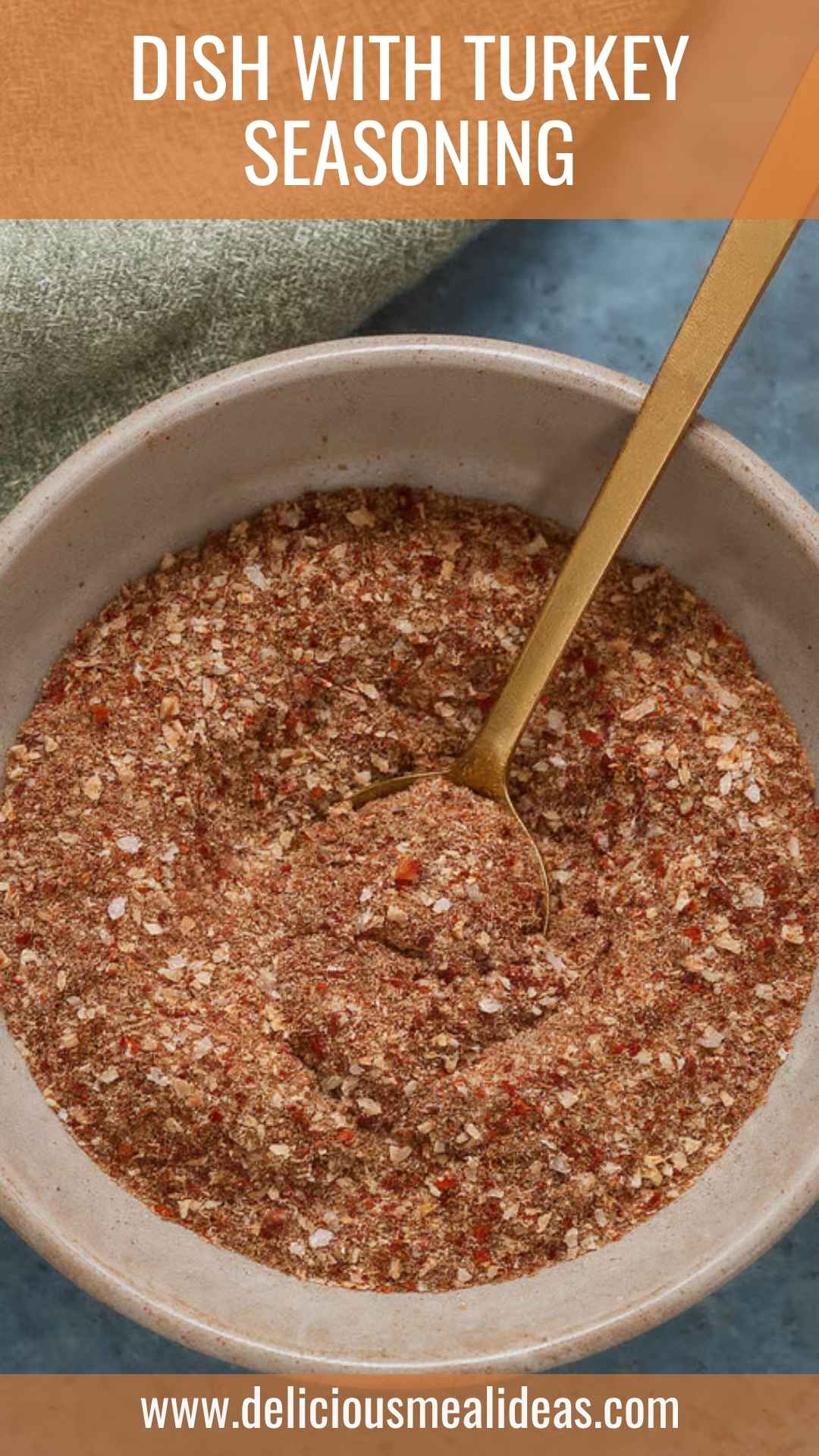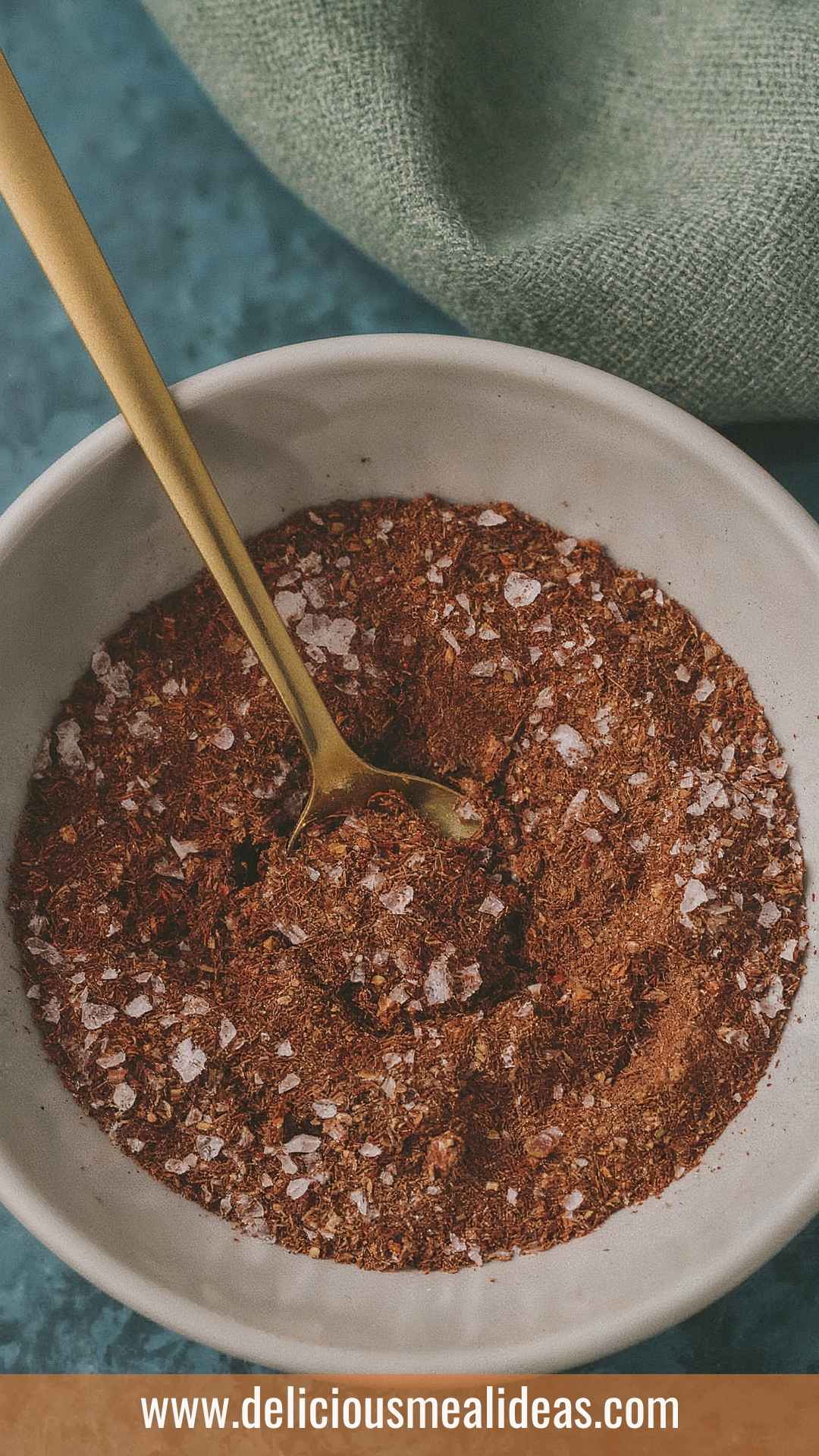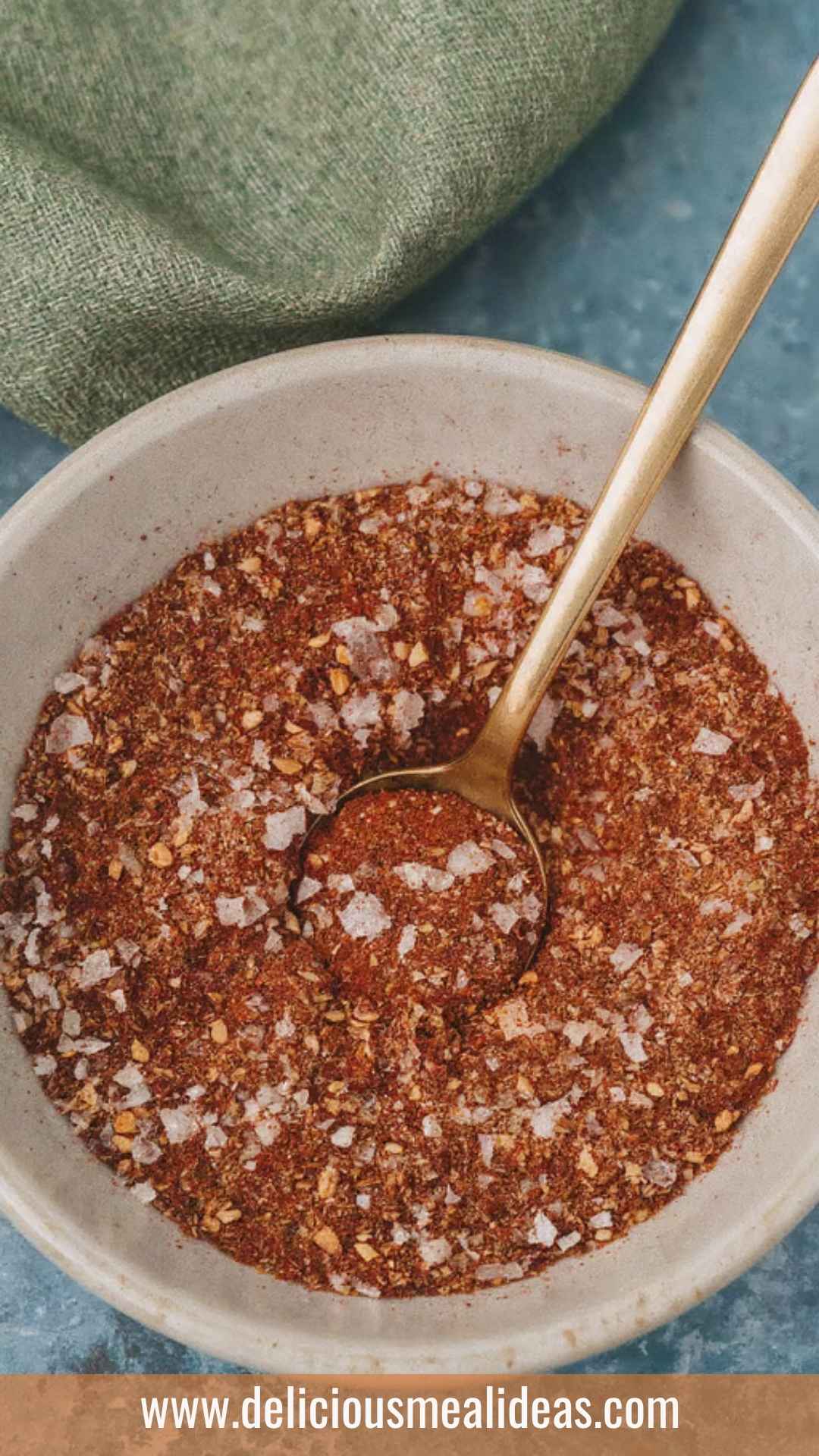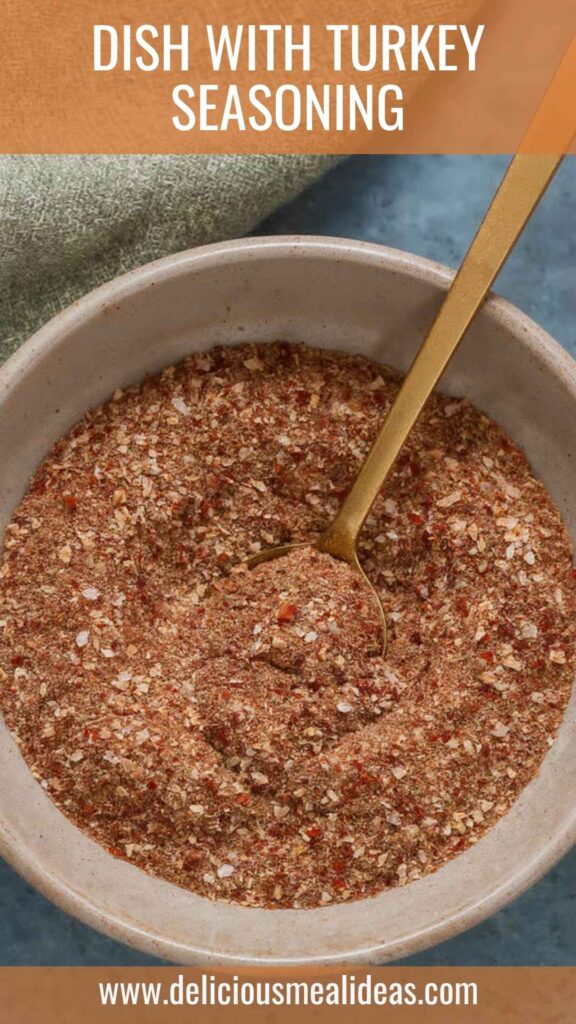Before diving into the delightful world of turkey seasoning, let’s talk about what you can serve alongside it. When turkey graces the table, think of ingredients and sides that complement its rich flavor. Classic pairings include:
- Cranberry Sauce: The tartness balances the savory meat perfectly.
- Stuffing: A blend of herbs and bread gives a hearty touch.
- Mashed Potatoes: A velvety, buttery side that pairs well with turkey.
- Green Beans Almondine: Crunchy, nutty, and vibrant—this dish adds a contrast.
- Roasted Carrots: Sweet and caramelized, they elevate the whole meal.
Now, let’s unpack turkey seasoning, the soulmate of your turkey dish!

What is Turkey Seasoning?
At its core, turkey seasoning is a blend of spices and herbs that enhance the natural flavors of turkey. While it might vary from region to region, or even family to family, the common thread is its ability to elevate this classic dish. Think of garlic, rosemary, thyme, and sage. Each herb brings depth and character, helping to create a delicious experience with every bite.
How Does It Taste Like?
Imagine biting into a perfectly roasted turkey, the exterior seasoned to golden perfection. The first taste is savory, with hints of earthiness from herbs. Garlic adds a punch while herbs like sage and thyme bring in a fresh, aromatic quality.
The flavor lingers, ensuring that every bite feels inviting. Each spice interacts, creating a tapestry of taste, from fragrant to slightly peppery. Trust me; it’s more than just seasoning—it’s an explosion of flavors.
Why You’ll Love This
- Versatility: You can use turkey seasoning in various dishes beyond turkey, like roasted vegetables or chicken.
- Customizable: Tailor it to your taste buds! Love a bit more zest? Add more pepper or lemon zest.
- Simplicity: With just a handful of ingredients, you can whip up an incredible flavor profile that even a novice cook can manage.
- Health Benefits: Many herbs carry significant health benefits, like antioxidants and anti-inflammatory properties.
- Time-Saver: Pre-made mixes can be convenient, but nothing beats a fresh blend that you control.
Ingredients
Let’s break down the staples for the perfect turkey seasoning.
Garlic powder – 2 teaspoons
Onion powder – 2 teaspoons
Dried thyme – 1 teaspoon
Dried rosemary – 1 teaspoon
Dried sage – 1 teaspoon
Black pepper – 1 teaspoon
Salt – 2 teaspoons
Paprika – 1 teaspoon

Step by Step Directions
Step 1: Gather Your Ingredients
Start by combing through your pantry. Pull out all the ingredients listed. Make sure you have the freshest herbs available. Herbs lose potency over time, and we want your seasoning to shine brightest.
Step 2: Measure Carefully
Using measuring spoons, measure exactly 2 teaspoons of garlic powder and onion powder. Then, measure out 1 teaspoon each of thyme, rosemary, sage, and paprika. Finally, use 1 teaspoon of black pepper and 2 teaspoons of salt. Precision counts, especially in seasoning.
Step 3: Mix the Seasoning
In a medium bowl, combine all the measured ingredients. Use a whisk or a fork to thoroughly mix them together. You want to make sure the flavors integrate well, so breaking up clumps is essential.
Step 4: Store It Right
Once mixed, transfer your seasoning to an airtight container. Glass jars work wonderfully. Label it with the name and date made. This step ensures you remember its freshness.
Step 5: Use It
Now the fun begins! Rub your turkey with olive oil and coat evenly with your freshly made seasoning. Don’t forget to season inside the cavity! Let it marinate for at least an hour for optimal flavor penetration.
Tips on Making Turkey Seasoning
- Use Fresh Herbs: If you have access to fresh herbs, use them! Just adjust the measurements. Four times the amount of fresh to dry is a good rule.
- Adjust Spice Levels: If you prefer a kick, consider adding cayenne pepper for extra heat.
- Experiment with Citrus: A touch of lemon or orange zest can brighten your seasoning beautifully.
- Let it Sit: Allowing your turkey to marinate for several hours will deepen the flavors.
- Double the Batch: Make a larger batch and store it! You can use it for other meats or as seasoning for veggies.
How Do You Store This Turkey Seasoning?
Your turkey seasoning should be stored in a cool, dry place, away from direct sunlight. A sealed jar can last up to six months.
What Other Substitutes Can You Use in Turkey Seasoning?
When you’re low on spices, fear not! Here are five alternatives you can use instead of traditional turkey spices.
- Italian Seasoning: A blend that usually contains rosemary, thyme, oregano, and basil. It provides a lovely, herby profile that works wonderfully with turkey.
- Cajun Seasoning: For those who like soulful heat, Cajun blends bring zest with a blend of paprika, cayenne, and herbs.
- Herbes de Provence: This classic French mixture includes a variety of herbs and can infuse your turkey with a beautiful Mediterranean flavor.
- Barbecue Rub: Using a sweet and spicy rub will create a completely different taste profile, perfect for grilling.
- Lemon Pepper: For a zesty twist, mix in lemon pepper seasoning. It adds brightness to the turkey’s flavor.

Conclusion
Crafting your own turkey seasoning is a rewarding process that enhances not just the taste of your dish but also the experience of preparing it. With every sprinkle, you’re reminded of family gatherings and moments filled with laughter and comfort.
Embrace the journey, and let the flavors guide you to unforgettable meals that bring everyone back to the table. Whether you opt for something classic or adventurous, trust that homemade seasoning is bound to elevate whatever dish you’re gracing with it.
Happy cooking, my friend! Time to create some culinary magic!
You’ll also like the following recipes!
- Quick Easy and Yummy Apple Tart Recipe
- Thanksgiving Dressing
- Slow Cooker Chicken Tortilla Soup Recipe

Dish With Turkey Seasoning – Delicious Meal Ideas
Description
There’s something magically comforting about a beautifully seasoned turkey. As the aroma fills your kitchen, family and friends come together, fueled by the anticipation of a hearty meal. Turkey seasoning does more than add flavor; it creates memories and traditions. From Thanksgiving to family gatherings, each sprinkle carries a tale of togetherness and joy.
I’ve tested countless blends of spices in my kitchen, and each time I land on a perfect turkey seasoning mix, I find myself smiling. The soul of flavor is essential in every bite. When you create your own blend, you tailor it to your palate and create an experience rather than just food. Ready to dive in? Let’s explore what turkey seasoning is all about!
Ingredients
Instructions
Step 1: Gather Your Ingredients
-
Start by combing through your pantry. Pull out all the ingredients listed. Make sure you have the freshest herbs available. Herbs lose potency over time, and we want your seasoning to shine brightest.
Step 2: Measure Carefully
-
Using measuring spoons, measure exactly 2 teaspoons of garlic powder and onion powder. Then, measure out 1 teaspoon each of thyme, rosemary, sage, and paprika. Finally, use 1 teaspoon of black pepper and 2 teaspoons of salt. Precision counts, especially in seasoning.
Step 3: Mix the Seasoning
-
In a medium bowl, combine all the measured ingredients. Use a whisk or a fork to thoroughly mix them together. You want to make sure the flavors integrate well, so breaking up clumps is essential.
Step 4: Store It Right
-
Once mixed, transfer your seasoning to an airtight container. Glass jars work wonderfully. Label it with the name and date made. This step ensures you remember its freshness.
Step 5: Use It
-
Now the fun begins! Rub your turkey with olive oil and coat evenly with your freshly made seasoning. Don't forget to season inside the cavity! Let it marinate for at least an hour for optimal flavor penetration.
Nutrition Facts
Servings 16
- Amount Per Serving
- Calories 3kcal
- % Daily Value *
- Sodium 291mg13%
- Total Carbohydrate 1g1%
* Percent Daily Values are based on a 2,000 calorie diet. Your daily value may be higher or lower depending on your calorie needs.
Note
- Use Fresh Herbs: If you have access to fresh herbs, use them! Just adjust the measurements. Four times the amount of fresh to dry is a good rule.
- Adjust Spice Levels: If you prefer a kick, consider adding cayenne pepper for extra heat.
- Experiment with Citrus: A touch of lemon or orange zest can brighten your seasoning beautifully.
- Let it Sit: Allowing your turkey to marinate for several hours will deepen the flavors.
- Double the Batch: Make a larger batch and store it! You can use it for other meats or as seasoning for veggies.





